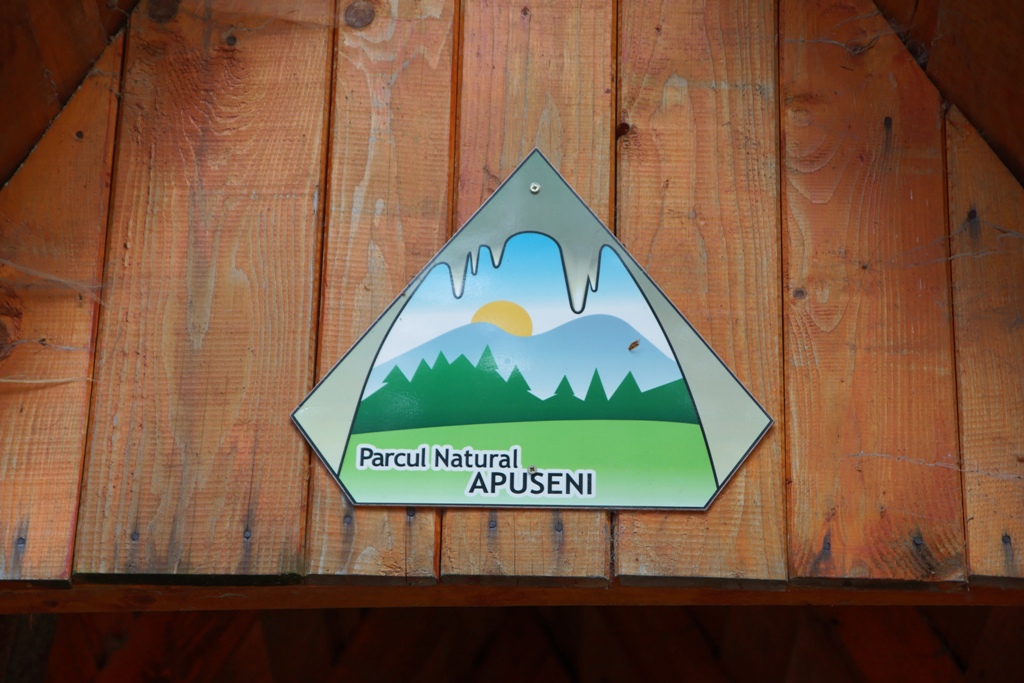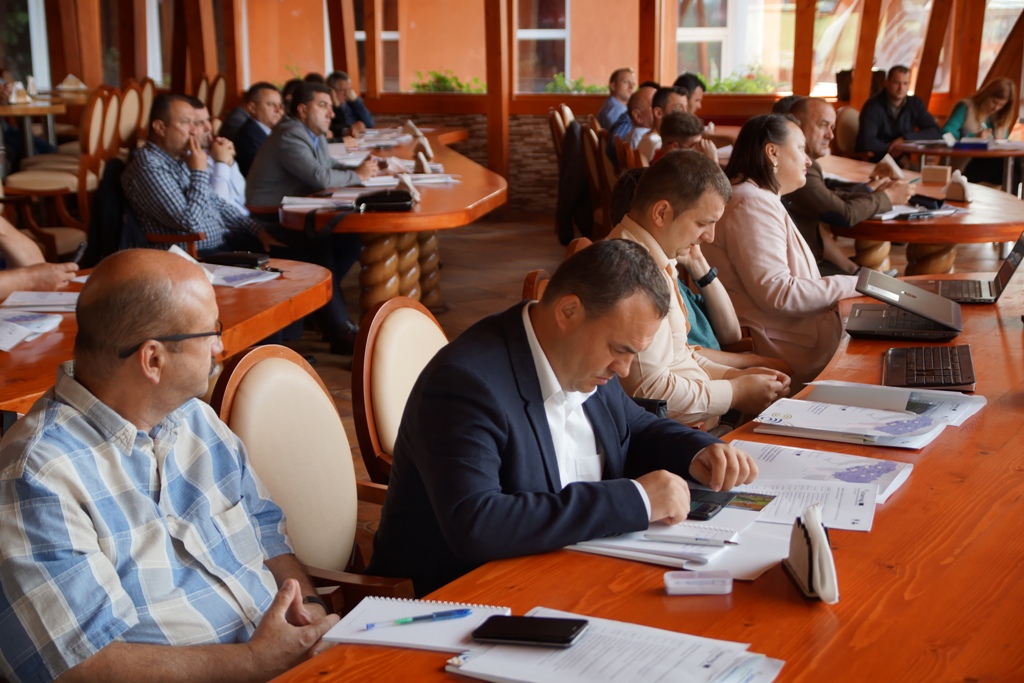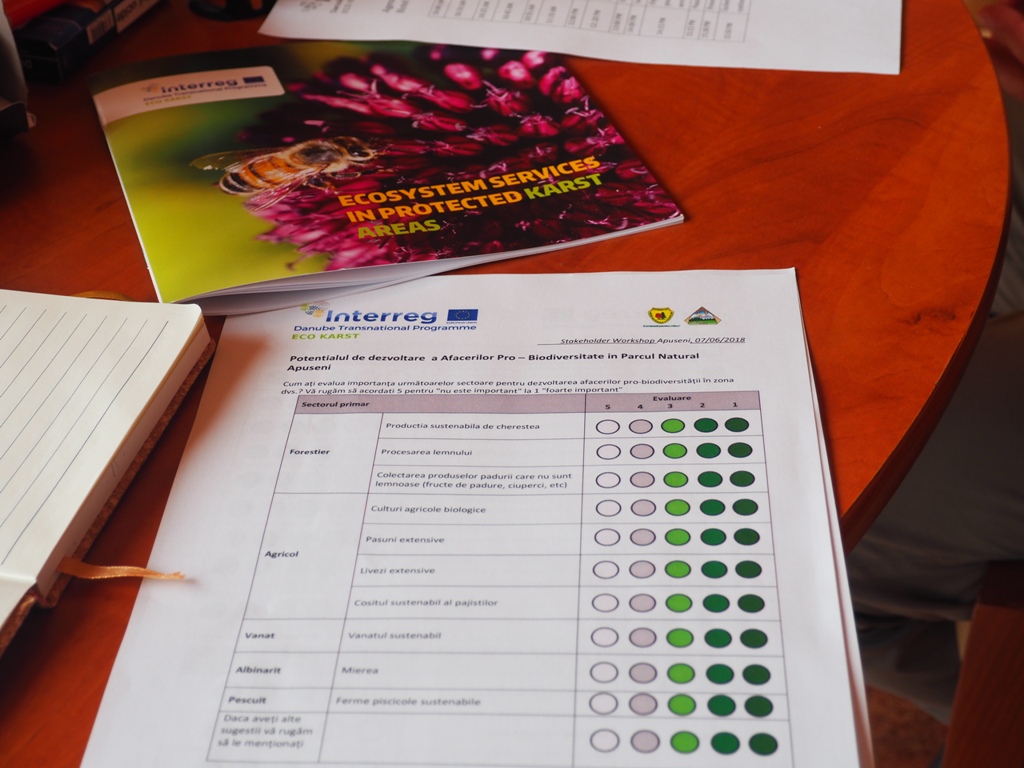ECO KARST - Apuseni Nature Park successfully organized the first workshop with stakeholders
13-06-2018
On June 7, 2018, Apuseni Nature Park organized their first workshop with stakeholders in Vârtop, Romania. The main objectives of the workshop were to inform relevant stakeholders in Apuseni Nature Park region about the ECO KARST project, present the most relevant ecosystem services existing in Apuseni as well as to identify promising business development opportunities from the region. The workshop gathered 35 participants, including the mayors of some of the municipalities in the park, representatives of county councils, environmental protection agencies, water administration agencies, NGO and local entrepreneurs. Along with the persons involved in organizing the event (including some of our rangers) 50 persons attended this whole-day workshop.

The workshop was opened by a welcoming speech of Alin Mos, director of the Apuseni Nature Park. Alin Mos gave a short presentation about the Ecosystem services and Pro Biodiversity Business concepts.
Ana Bordjan (Slovenian Forest Services) and Udo Gattenlöhner (Global Nature Fund) joined the workshop on the behalf of the ECO KARST project team. Ana Bordjan, a communication manager of the ECO KARST project, introduced stakeholders to ECO KARST project, while also explaining the multiple role of Slovenian Forest Services.
Anghel Drasovean presented the results of the ecosystem mapping process in Apuseni Nature Park performed in the previous period.

More insight in Pro Biodiversity Businesses (PBB) term and motivation to launch a Pro Biodiversity Business, participants received from Udo Gattenlöhner. Gattenlöhner talked about the main principles of PBB and showed some of the best PBB practices in the world.
„It was very encouraging for me to see, that the stakeholders in the Bükk as well as the Apuseni region have made a first realistic assessment of the opportunities and discussed and shared visions for a sustainable development of those valuable protected karst regions in Hungary and Romania. The active and harmonic participation of different interest groups in the workshops was an excellent start in order to jointly identify ways towards a proper balance between the protection of ecosystems and their sustainable use and economic development” said Udo Gattenlöhner.
Following the lunch break, stakeholders were split in groups and they performed the analysis of 4 selected ecosystem services in Apuseni Nature Park: 1. wood and timber; 2. touristic attractiveness; 3. grazing and hay production; 4. forest fruit, mushrooms and medicinal plants. Work in groups was performed using the ‘World Café’ methodology. This way, group members could choose another group and discuss new topic with different participants, following the same principle as in the previous group.

At the end, each group presented main ideas arised from the fruitful disussion. Facilitators closed the workshop by indicating the first results and setting out the course for next workshops, scheduled for October, 2018.
Stakeholders expressed their strong interest to be involved in the project continuously and that they expect a regular reporting on the project progres. All stakeholders agreed that they should meet on a regular basis and that they should together aim for promotion of local businesses and partnerships among all countries included in ECO KARST project. Continous involvement of the local community was highlighted as a very important success factor for the project implementation. Some of the stakeholders suggested to create a database of the operators regardless of the service/product in order to establish connections and partnerships easily. They also emphasized the importance of constant and improved collaboration between municipalities and Apuseni Nature Park.
Organizers and Lead partner are very content with the organization of the first workshop and grateful to all participants willing to contribute to sustainable development of the Apuseni Nature Park.
Photo credits: Coras Florin & Udo Gattenloehner
